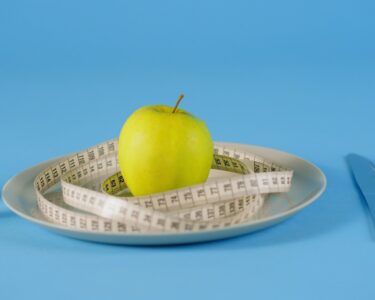When we think of special events in the month of February, Valentine’s Day always tops the list. February also happens to be National Children’s Dental Health Month, which is a month-long national health observance promoted by the American Dental Association. It brings together dental health professionals in an effort to promote great oral health habits in children. As an orthodontist who treats both children and adults, I am constantly emphasizing the importance of maintaining a clean and healthy mouth and educating my patients on proper oral hygiene techniques.
This year’s slogan from the ADA for National Children’s Dental Health Month is “Brush and clean in between to build a healthy smile.” The American Academy of Pediatric Dentistry (AAPD) recommends that a child goes to the dentist by age one or within six months after the first tooth erupts. Why so early? As soon as a baby has teeth, he or she can get cavities. Preventive dental checkups can help identify early signs of tooth decay before they become a problem and also ensure the implementation of proper oral hygiene techniques. Early trips to the dentist also allow a child to get accustomed to dental visits, which should occur twice a year.
When is the right time for a child to see an orthodontist? The American Association of Orthodontists recommends a checkup with an orthodontic specialist no later than age seven. An early evaluation with an orthodontist allows the identification of potential problems that may require monitoring, or in other cases early treatment. Some examples of situations requiring early treatment are crossbites, oral habits, severe overbite, or severe underbite.
That being said, it is no secret that some children can find visiting the dentist to be an overwhelming experience. Fear of dentists, or dentophobia, is surprisingly common among young people. People who suffer from dentophobia cannot even visit the dentist without suffering from anxiety attacks or other symptoms. Similarly, the attacks can also be stimulated by the smells, sights or sounds of a dental surgery and simply being there can be enough to trigger a phobic reaction.
However, over the past few years, impressive changes have been made by the dental profession to recognize that some patients need more support, more advice, and more customer care from their dentists. With this in mind, modern dentists are now better trained and equipped to deal with dental phobics. Above all, they are more knowledgeable, more understanding, and more sympathetic and can offer advice, support, and resources for any young people struggling with dentophobia.
In addition to regular dental visits, proper home oral hygiene is crucial to maintaining a child’s healthy mouth. As a general rule, brushing should be for two minutes, twice daily, and flossing once a day. Oral hygiene is particularly important during orthodontic treatment. Teeth with braces should be brushed minimally three times daily, and I always recommend fluoridated toothpaste and water. A fluoride rinse before bed for orthodontic patients also helps prevent permanent stains or white spots on the teeth that can result from poor oral hygiene.
Another important component allowing for a child’s sparking smile is their diet. What children eat and when they eat it affects not only their general health but also their oral health. Alarmingly, Americans are consuming foods and drinks high in sugar and starches more often and in larger portions than ever before. It’s clear that junk foods and drinks with minimal nutritional value gradually have replaced nutritious foods and beverages for many people.
A steady diet of sugary foods and drinks can ruin a child’s teeth, especially among those who graze or snack throughout the day. When sugar is consumed over and over again in large, often hidden amounts, the harmful effect on teeth can be dramatic. Sugar on teeth provides food for bacteria, which produce acid. The acid in turn can eat away the enamel on teeth, leading to cavities.
In summary, the health of your child’s teeth and gums is contingent upon regular dental visits, proper and consistent brushing and flossing, and a healthy diet. Above all we must make healthy life choices in general and educate our children to do the same. Their teeth (and bodies) will thank you!
Dr. Rothman is the owner and orthodontist at Pinecrest Orthodontics, located in the Dixie Belle Shops at 12197 S. Dixie Highway in Pinecrest, FL. PH: 305.423.4130 pinecrestortho.com. Please email Dr. Rothman with your orthodontic questions at drrothman@pinecrestortho.com.














 Deering Estate
Deering Estate
 Massage Envy South Miami
Massage Envy South Miami
 Calla Blow Dry
Calla Blow Dry
 My Derma Clinic
My Derma Clinic
 Sushi Maki
Sushi Maki
 Sports Grill
Sports Grill
 The Healthy Kitchen
The Healthy Kitchen
 Golden Rule Seafood
Golden Rule Seafood
 Malanga Cuban Café
Malanga Cuban Café

 Kathleen Ballard
Kathleen Ballard
 Panter, Panter & Sampedro
Panter, Panter & Sampedro
 Vintage Liquors
Vintage Liquors
 The Dog from Ipanema
The Dog from Ipanema
 Rubinstein Family Chiropractic
Rubinstein Family Chiropractic
 Your Pet’s Best
Your Pet’s Best
 Indigo Republic
Indigo Republic




 ATR Luxury Homes
ATR Luxury Homes


 2112 Design Studio
2112 Design Studio
 Hamilton Fox & Company
Hamilton Fox & Company
 Creative Design Services
Creative Design Services
 Best Pest Professionals
Best Pest Professionals
 HD Tree Services
HD Tree Services
 Trinity Air Conditioning Company
Trinity Air Conditioning Company
 Cisca Construction & Development
Cisca Construction & Development
 Mosquito Joe
Mosquito Joe
 Cutler Bay Solar Solutions
Cutler Bay Solar Solutions


 Miami Royal Ballet & Dance
Miami Royal Ballet & Dance
 Christopher Columbus
Christopher Columbus
 Pineview Preschools
Pineview Preschools
 Westminster
Westminster
 Carrollton
Carrollton
 Lil’ Jungle
Lil’ Jungle
 Frost Science Museum
Frost Science Museum
 Palmer Trinity School
Palmer Trinity School
 South Florida Music
South Florida Music
 Pinecrest Orthodontics
Pinecrest Orthodontics
 Dr. Bob Pediatric Dentist
Dr. Bob Pediatric Dentist
 d.pediatrics
d.pediatrics
 South Miami Women’s Health
South Miami Women’s Health

 The Spot Barbershop
The Spot Barbershop
 My Derma Clinic
My Derma Clinic




 Miami Dance Project
Miami Dance Project

 Rubinstein Family Chiropractic
Rubinstein Family Chiropractic
 Indigo Republic
Indigo Republic

 Safes Universe
Safes Universe
 Vintage Liquors
Vintage Liquors
 Evenings Delight
Evenings Delight





 Atchana’s Homegrown Thai
Atchana’s Homegrown Thai
 Baptist Health South Florida
Baptist Health South Florida

 Laser Eye Center of Miami
Laser Eye Center of Miami
 Visiting Angels
Visiting Angels
 OpusCare of South Florida
OpusCare of South Florida

 Your Pet’s Best
Your Pet’s Best





 HD Tree Services
HD Tree Services
 Hamilton Fox & Company
Hamilton Fox & Company


 Creative Design Services
Creative Design Services